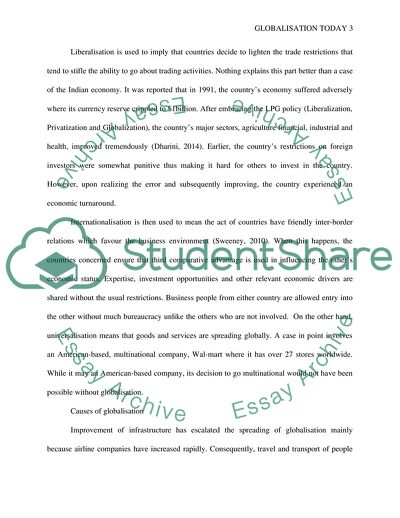Cite this document
(Globalization Today Report Example | Topics and Well Written Essays - 1750 words - 3, n.d.)
Globalization Today Report Example | Topics and Well Written Essays - 1750 words - 3. https://studentshare.org/marketing/1860285-globalisation-today-what-it-is-and-what-it-means-for-international-marketing-02163
Globalization Today Report Example | Topics and Well Written Essays - 1750 words - 3. https://studentshare.org/marketing/1860285-globalisation-today-what-it-is-and-what-it-means-for-international-marketing-02163
(Globalization Today Report Example | Topics and Well Written Essays - 1750 Words - 3)
Globalization Today Report Example | Topics and Well Written Essays - 1750 Words - 3. https://studentshare.org/marketing/1860285-globalisation-today-what-it-is-and-what-it-means-for-international-marketing-02163.
Globalization Today Report Example | Topics and Well Written Essays - 1750 Words - 3. https://studentshare.org/marketing/1860285-globalisation-today-what-it-is-and-what-it-means-for-international-marketing-02163.
“Globalization Today Report Example | Topics and Well Written Essays - 1750 Words - 3”. https://studentshare.org/marketing/1860285-globalisation-today-what-it-is-and-what-it-means-for-international-marketing-02163.


